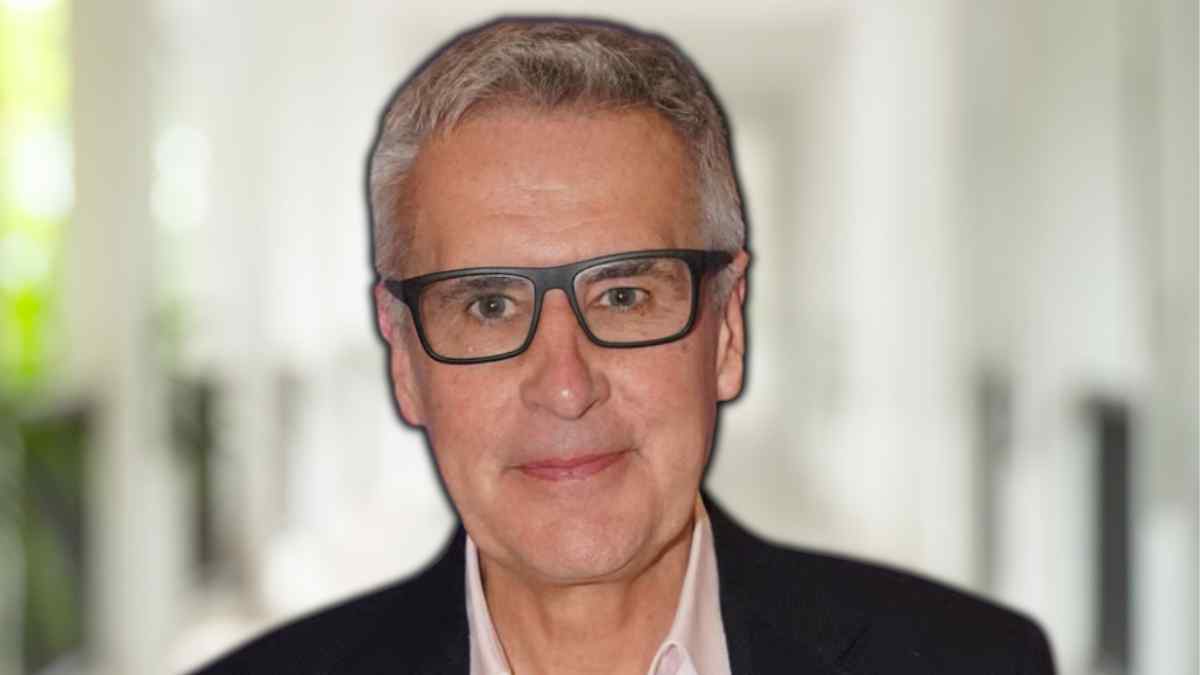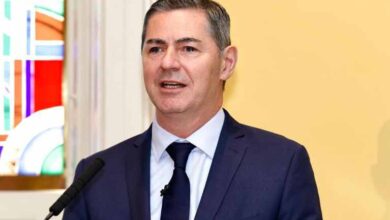Dermot Murnaghan: A Resilient Voice in British Journalism and Prostate Cancer Awareness

Dermot Murnaghan is a prominent British journalist and television presenter, best known for his authoritative presence on news platforms such as BBC, ITV, Channel 4, and Sky News. Over the course of a career spanning more than four decades, Murnaghan has become a trusted name in broadcast journalism. In 2025, his name surged in public consciousness once again, not for a news story he reported, but for a deeply personal health battle—his diagnosis with stage 4 prostate cancer.
His courage in confronting the disease publicly, coupled with his longstanding contributions to media, makes Dermot Murnaghan a figure of resilience, advocacy, and journalistic excellence. This article explores his professional journey, the impact of his cancer diagnosis, and the powerful message he is sending to the public.
Early Life and Education
Dermot John Murnaghan was born on 26 December 1957 in Barnstaple, Devon. Though born in England, he was raised in Northern Ireland from an early age. His education began at the prestigious Sullivan Upper School in Holywood, County Down. His academic prowess and passion for communication eventually led him to the University of Sussex, where he read History. Later, he polished his journalistic skills at City University London, studying on a postgraduate journalism course that would prove instrumental in launching his career.
These formative years laid a solid foundation for a man who would go on to become one of Britain’s most recognisable news anchors.
The Rise of a Trusted Broadcaster
Dermot Murnaghan’s career began in newspapers, including brief stints at local publications before he made his way to television. His first significant role in broadcast journalism was with Channel 4, where he co-presented the popular show The Big Breakfast. However, it was his transition into serious news broadcasting that solidified his reputation.
At ITN, Murnaghan presented ITV News at Lunchtime, News at Ten, and ITV Evening News, earning recognition for his composed and reliable delivery of national and international affairs. He later moved to the BBC, where he became a key presenter on BBC Breakfast, BBC News at Six, and BBC News 24.
In 2007, he joined Sky News, where he anchored major stories including general elections, royal events, and international crises. His commanding on-air presence and incisive interviewing style set him apart, making him a familiar and respected face in British households.
Hosting Eggheads: A Lighter Side
From 2003 to 2014, Murnaghan presented the popular quiz show Eggheads on BBC Two. The programme, which tested general knowledge and featured a panel of quiz champions, showcased a different side of the journalist. While maintaining his professional gravitas, he also demonstrated wit and warmth, endearing himself to a wider audience beyond the newsroom.
His departure from Eggheads marked a return to full-time news coverage, but his time on the show remains a fond memory for many viewers.
The Final Broadcast at Sky News
After 16 years at Sky News, Dermot Murnaghan presented his final broadcast in 2023. It was a moment of reflection, celebration, and farewell. He signed off his last show with a memorable and characteristically witty line: “You stay classy, Planet Earth.” It was a fitting end to a remarkable tenure that had spanned some of the most tumultuous and historic events in modern British and global history.
His departure was not the end of his broadcasting story, however, as Murnaghan has continued to engage with media through documentaries, podcasts, and public speaking.
A Life-Changing Diagnosis: Stage 4 Prostate Cancer
In mid-2025, Dermot Murnaghan made headlines not for breaking news, but by bravely sharing his personal battle with stage 4 prostate cancer. The diagnosis shocked many of his followers and colleagues, not least because of its severity—the cancer had already spread to other parts of his body, including the bones.
Murnaghan explained that he had undergone private health tests for years but had not received a PSA (Prostate-Specific Antigen) test—a critical marker for early detection of prostate cancer. This oversight, he stated, was a stark example of how men, even those with regular health checks, can fall through the gaps in cancer detection.
His message was simple yet powerful: get tested, even if you feel fine.
Raising Awareness and Saving Lives
Dermot Murnaghan’s announcement was more than just a personal update—it was a rallying cry. He began a passionate campaign to raise awareness about prostate cancer, particularly the importance of PSA testing for men over 50. He emphasised that early-stage prostate cancer is often asymptomatic, making proactive testing vital.
The journalist became an ambassador for Prostate Cancer Research and supported campaigns pushing for a national screening programme in the UK. Currently, no such programme exists, although men over 50 can request a test through their GP. Murnaghan’s advocacy aims to change that by encouraging the public and policymakers to prioritise men’s health in a more structured and accessible way.
Coping with Stage 4 Cancer
Despite the seriousness of his diagnosis, Murnaghan remains upbeat and determined. He has publicly stated that he is “feeling well” and is “responding positively” to ongoing treatment. His attitude has inspired many others facing similar challenges and has underscored the importance of mindset, support systems, and early detection.
He also continues to participate in charitable events, including an upcoming cycling challenge in Glasgow alongside fellow prostate cancer patient and Olympic gold medallist Sir Chris Hoy. The event, called “Tour de 4,” aims to raise funds for stage 4 cancer research and treatment.
Media Legacy and Continued Influence
Even in the face of illness, Dermot Murnaghan continues to work on projects close to his heart. His true crime documentary series Killer Britain has garnered strong viewership, combining his journalistic rigour with compelling storytelling. Additionally, he hosts the Legends of News podcast, interviewing prominent media figures and reflecting on the evolution of journalism.
These projects demonstrate that his influence in media is far from over. In fact, his ability to adapt and remain relevant in an ever-changing landscape speaks volumes about his skills and resilience.
A Role Model for Journalists and Patients Alike
Dermot Murnaghan’s journey is one of professional success, personal trials, and public service. His transparency about his health, combined with decades of impactful journalism, has cemented his legacy not only as a broadcaster but as a compassionate advocate.
He embodies qualities that are increasingly rare in today’s media landscape: integrity, composure, humility, and a commitment to truth. And now, by using his platform to encourage potentially life-saving decisions among men, he is performing a service arguably as important as any headline he’s delivered in the newsroom.
The Broader Conversation on Men’s Health
Murnaghan’s story also brings to light a broader societal issue: the often-overlooked subject of men’s health. Studies show that men are statistically less likely to visit their GP, take preventive health measures, or seek emotional support. This cultural tendency towards silence or stoicism can lead to late diagnoses and poorer outcomes.
By speaking openly about his diagnosis and urging men to take action, Murnaghan is helping to shift that narrative. His message challenges outdated perceptions and reinforces the idea that strength lies not in silence but in self-awareness and proactive care.
Conclusion
Dermot Murnaghan is more than a veteran journalist. He is a storyteller, a campaigner, and a role model. His career has brought clarity to the chaos of breaking news. Now, his personal battle with prostate cancer is bringing visibility to a silent health crisis affecting thousands of men.
His advocacy for early testing, coupled with a lifetime of journalistic service, ensures that Dermot Murnaghan’s influence will endure far beyond the news studio. Whether through his past broadcasts, current campaigns, or future media projects, he continues to inform, inspire, and lead by example.



